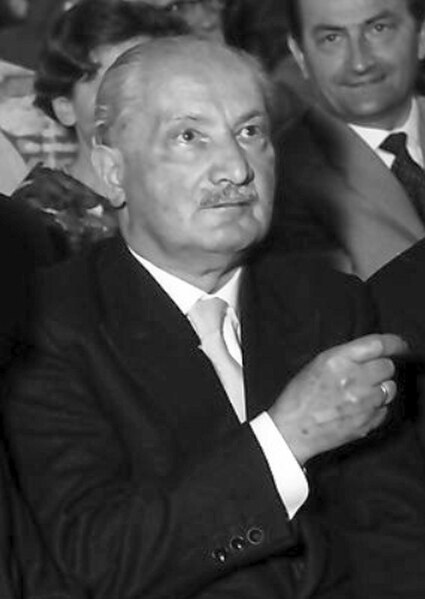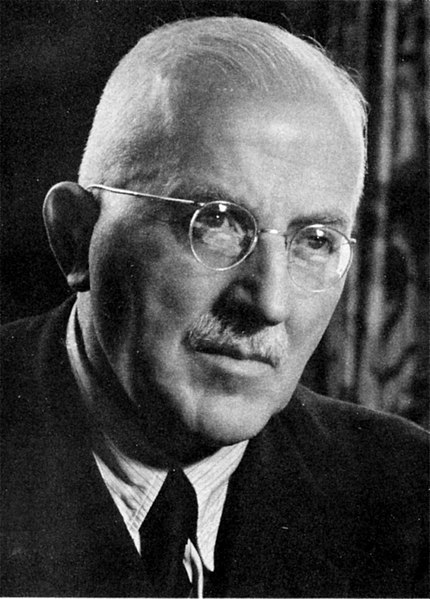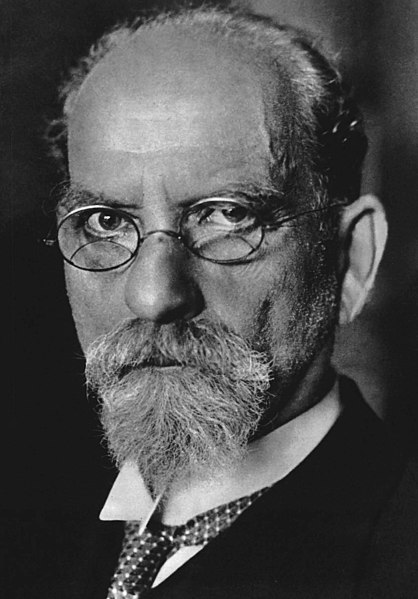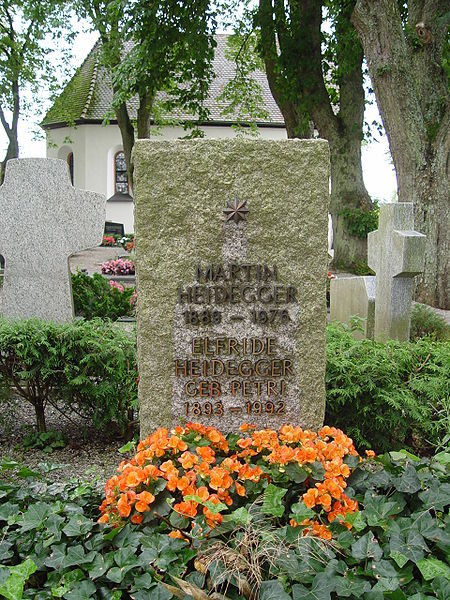Martin Heidegger and Nazism
Philosopher Martin Heidegger joined the Nazi Party (NSDAP) on May 1, 1933, ten days after being elected Rector of the University of Freiburg. A year later, in April 1934, he resigned the Rectorship and stopped taking part in Nazi Party meetings, but remained a member of the Nazi Party until its dismantling at the end of World War II. The denazification hearings immediately after World War II led to Heidegger's dismissal from Freiburg, banning him from teaching. In 1949, after several years of investigation, the French military finally classified Heidegger as a Mitläufer or "fellow traveller." The teaching ban was lifted in 1951, and Heidegger was granted emeritus status in 1953, but he was never allowed to resume his philosophy chairmanship.
Martin Heidegger circa 1960
The University of Freiburg, where Heidegger was Rector from April 21, 1933, to April 23, 1934
Hermann Staudinger
Edmund Husserl, the man who established the school of phenomenology
Martin Heidegger was a German philosopher who is best known for contributions to phenomenology, hermeneutics, and existentialism. He is often considered to be among the most important and influential philosophers of the 20th century.
Heidegger in 1960
The Mesnerhaus in Meßkirch, where Heidegger grew up
Heidegger's grave in Meßkirch
View from Heidegger's vacation chalet in Todtnauberg. Heidegger wrote most of Being and Time there.







